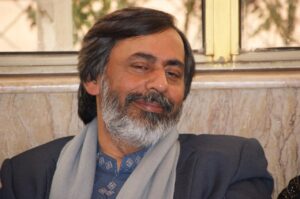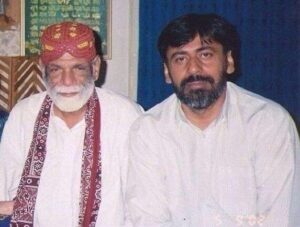Increased Confidence
Introduction
Self-confidence is the foundation upon which we build our dreams and achieve our goals. It’s the belief in our abilities and worth, and it plays a pivotal role in our overall well-being. In this article, we’ll delve into the world of self-confidence—understanding its nature, investigating potential causes of low self-confidence, discussing management strategies, and introducing an unconventional approach known as the “Ultimate Remedy.” This unique audio therapy claims to have the power to boost self-confidence by harnessing the healing potential of sound and intention.
Understanding Self-Confidence
The Essence of Self-Confidence
Self-confidence is the belief in one’s abilities, qualities, and judgment. It’s the driving force that empowers us to take on challenges, make decisions, and face life’s uncertainties with poise and assurance. However, it’s not a constant trait but can vary from one situation to another.
Understanding Causes of Low Self-Confidence
Low self-confidence can stem from various sources and experiences:
Negative Self-Perception: How we perceive ourselves can significantly impact self-confidence.
Past Failures: Previous setbacks or failures can erode self-belief.
Criticism and Rejection: Harsh criticism or rejection can shake our confidence.
Comparison: Constantly comparing ourselves to others can lead to self-doubt.
Fear of Failure: The fear of failing can paralyze self-confidence.
Management Strategies for Boosting Self-Confidence
Boosting self-confidence is a journey that requires patience and self-compassion. Here are some strategies to help improve self-confidence:
Positive Self-Talk: Challenge negative thoughts and replace them with positive affirmations.
Set Achievable Goals: Break down big goals into smaller, attainable steps.
Face Your Fears: Gradually confront your fears and step out of your comfort zone.
Learn from Failure: View failures as opportunities for growth.
Seek Support: Talk to friends, family, or a therapist for emotional support.
The “Ultimate Remedy” An Alternative Approach
The “Ultimate Remedy” introduces an unconventional approach to boosting self-confidence. This unique audio therapy claims to have the power to increase self-confidence by harnessing the healing potential of sound and intention.
How to Use the “Ultimate Remedy” for Self-Confidence
If you decide to explore the “Ultimate Remedy” as a potential remedy for low self-confidence, follow these steps:
Download the Audio: Visit the designated website and download the “Ultimate Remedy” audio from the provided links.
Follow Instructions: Pay close attention to the instructions on how to use the audio. Specifics of its usage are not detailed in this article, so it’s crucial to fully understand the recommended process.
Contact for Help: For any questions or assistance, you are encouraged to reach out to “help@mastmasthealers.com.”
Happy Patients
Years since day one
%
Satisfaction
Testimonial
How to Listen to the Ultimate Remedy:
Download the Ultimate Remedy audio from our website or app. It’s free and accessible to all.
- Choose a quiet, comfortable space where you won’t be disturbed.
- Close your eyes and visualize yourself in the presence of your higher power or the essence of the universe.
- Listen to the audio with great concentration and closed eyes.
- After the audio is finished, open your eyes and take half a glass of water.
- Close your eyes again and say “your name” or a word that represents your belief (such as “God”, “Universe”, or “Love”) three times in your heart.
- Drink the water with closed eyes in three sips.
- For optimal results, it’s recommended to listen to the Ultimate Remedy three times a day (morning, evening, and before sleeping) for seven consecutive days.
About the Creator – Syed Safdar Hussain Bukhari
Introduction and Early Life
Syed Safdar Hussain Bukhari, also known as Kakian Wali Sarkar, was a unique example of kindness, devotion, and tenacity. Born on May 6th, 1940, he dedicated his life to serving humanity and providing relief to those suffering from various ailments.

Social Work and Spiritual Journey
Between 1960-1980, he engaged in social work by undertaking road repairs, establishing schools, and arranging medical supplies in Lilla Town. In 1990, he left his ancestral home and family wealth to move to Lahore, where he comforted the depressed and saddened through mystic dance and music.
The Ultimate Remedy
In 1998, Baba Bukhari’s research led to the discovery of “The Ultimate Remedy,” a blessed audio that he believed could cure physical, psychological, spiritual, and supernatural problems. The remedy involved listening to the audio three times a day for seven consecutive days, followed by a specific water ritual. This method claimed to cure various ailments, including coronavirus, AIDS, cancer, drug addiction, worldly problems, and psychological issues.
Legacy and Death
Baba Bukhari’s research and unconditional love left a lasting impact on humanity, providing positive thinking, peace of mind, health, fearless life, and an example of love and compassion. He passed away on February 8th, 2005, leaving behind a legacy of healing through “The Ultimate Remedy.”

His spiritual successor is Syed Baba Jaan
According to Baba Bukhari (RA), his spiritual successor is Mr. Shakir Uzair, also known as Syed Baba Jaan . As the chosen heir to Baba Bukhari’s spiritual legacy, Syed Baba Jaan carries forward the teachings and practices that have been passed down through generations. Dedicated to serving humanity and promoting healing, Mr. Shakir Uzair continues to spread the message of love, compassion, and the transformative power of the Ultimate Remedy to help countless individuals in their journey towards holistic wellness and personal growth.

